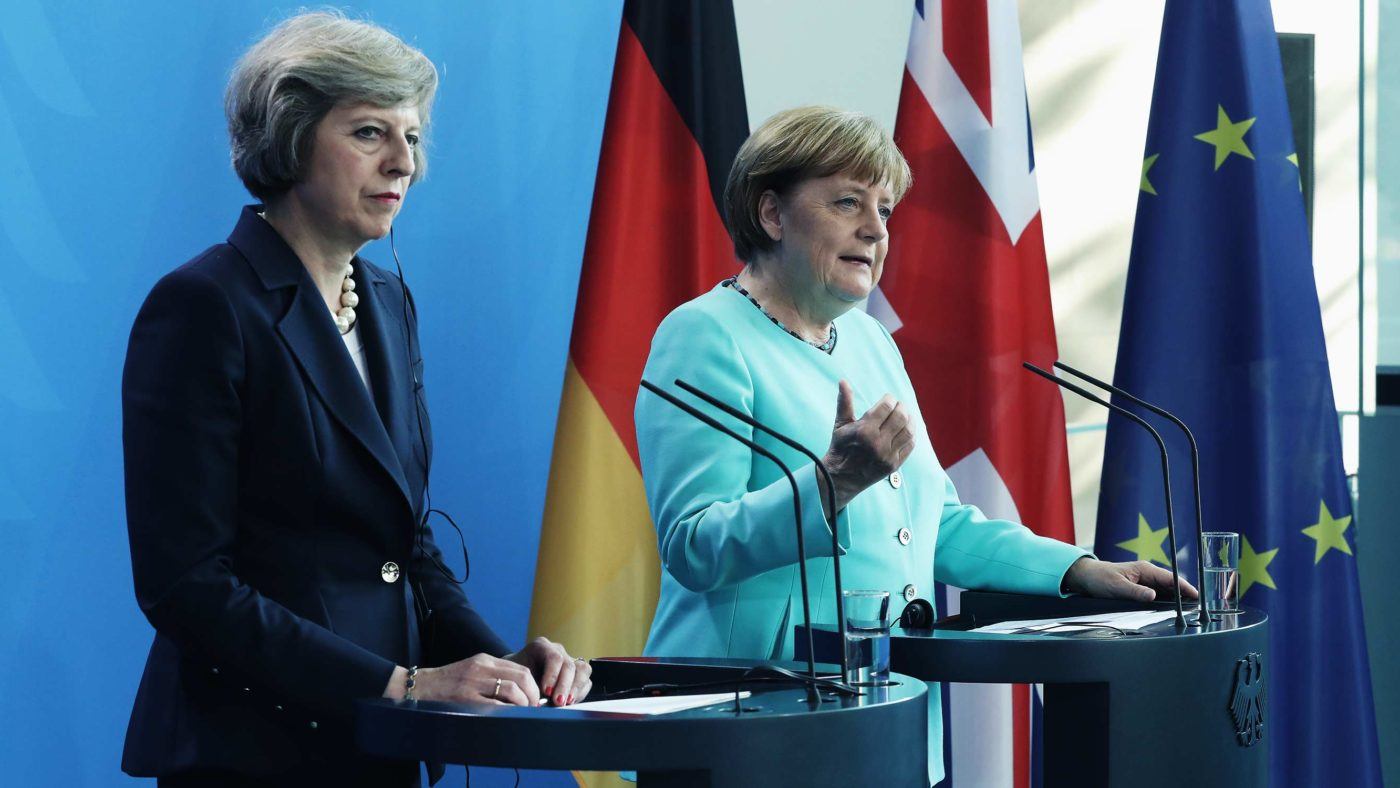Perhaps the most important outcome of Brexit is not what we have lost, or what we have changed, but what has survived.
We have not seen blind panic among European ministries in the aftermath. We have seen a shock, but also a determination to quickly set out a deal on a new European order.
Summits with France and Germany were arranged within days of Theresa May taking office. Her first act was to call Angela Merkel, perhaps the first time in modern British history that the new Prime Minister’s first phone call was not to the US President.
Whatever had been said in the French press about “sticking the boot in” to Britain to discourage further EU exits, there was little hint of it in Hollande’s speech, who spoke of maintaining the current border arrangements in Calais. Instead of attacking Britain for throwing a spanner in the works of the European project, he calmly set out his negotiating position.
Likewise, Angela Merkel’s speech emphasised the common ground between Britain and Germany; from the central importance of continued economic trade and growth, to the superior quality of German footballers.
In short, the principle of European diplomacy, that all disputes must be consensually negotiated, has been not been undermined by Brexit.
Now this is not to say that there are no issues of tension at stake. Both sides have little to gain and much to lose. British status as a global power lies in the balance. A hard Brexit could damage our economy and slash our soft power. The manifest destiny of the European Union as the continent’s future lies in peril on the other side.
The appointment of Boris Johnson, a man who has compared EU Commission staffers to Nazis, as Foreign Secretary clearly grates. These are not trivial issues, but ones that are central to the politics and the identity of Europe itself.
And yet, despite this gravity, Europe’s stateswomen and men sat down, held press conferences, and set out the issues at hand.
Issues from the correct angle of banana curvature to solutions to the migrant crisis, are still being negotiated by boringly dressed officials in obscure offices going line by line through various proposals.
For those who have a romanticised view of politics, and perhaps watch a little too much House of Cards, this may not sound particularly attractive. But it is this process that is the heart of what has made Europe great, and more importantly, peaceful, in the post war era. Tub thumping demagogues riling up crowds, and negotiating by decree, are largely a thing of the past thanks to this fundamental change in political culture. That negotiation, not conflict, is the only game in town.
Now this is not to say the Brexit process is not without extreme risk. That an exit will be negotiated is one thing. Whether the UK will benefit is entirely another. There will be no £350 million for the NHS. We may gain power back over some issues, such as immigration, but that will be subject to the terms of the deal. By leaving the union, we will lose control of influencing European economic standards, which are far less likely to reflect British needs post Brexit. Arguably, the taking back of control will not be all in one direction.
On the EU side we are quite simply in unknown territory, as no country has actually indicated it wished to formally leave the union to date. Greenland doesn’t count, so the mechanics of the process are still vague.
Even if we get what we want in the short term, this may not cause further problems down the line. Indeed, hints that Britain might get a break on freedom of movement even while staying in the EEA, the plum deal for every reluctant remainer, may make other countries in the union more likely to bend the rules. A good deal for Britain could create spill over in other parts of the EU.
That said a Brexit will force those who believe in the European project to think again about what is valuable about it. Intergovernmental cooperation, common ethical values and economic prosperity, are the things that make Europe great, and those aims should not be forgotten in the name of the interests of accelerated federalisation. It is those values, not the EU itself, that are the true aims of the European project.
But a successful Brexit for both sides, if indeed that actually happens, could make the European project much stronger. This flexibility, and concern for the rights of members above all else, is exactly what makes the European Union so attractive to countries in the Balkans, Ukraine and Georgia. Unlike for Russia, for the EU, no means no. There is a reason behind the EU’s reputation as an empire by invitation, rather than being one of imposition.
Whether we get May’s “right deal for Britain” or face rebuilding our trade relations from scratch is completely unclear. What is not unclear, is that the culture of solving disputes through peaceful, negotiated settlements has not broken down. A successful Brexit, whatever the other consequences, could well strengthen that principle.


